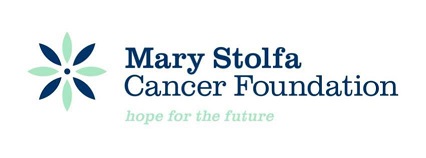 |

|
|
|
Merkel Cell Carcinoma General Information What is Merkel cell carcinoma? Merkel cell carcinoma, also called neuroendocrine cancer of the skin, is a rare type of disease in which malignant (cancer) cells are found on or just beneath the skin and in hair follicles. Merkel cell carcinoma usually appears as firm, painless, shiny lumps of skin. These lumps or tumors can be red, pink, or blue in color and vary in size from less than a quarter of an inch to more than two inches. Merkel cell carcinoma is usually found on the sun-exposed areas of the head, neck, arms, and legs. This type of cancer occurs mostly in whites between 60 and 80 years of age, but it can occur in people of other races and ages as well. Merkel cell carcinoma grows rapidly and often metastasizes (spreads) to other parts of the body. Even relatively small tumors are capable of metastasizing. When the disease spreads, it tends to spread to the regional (nearby) lymph nodes and may also spread to the liver, bone, lungs, and brain. Lymph nodes are small, bean-shaped structures that are found throughout the body. They produce and store infection-fighting cells. Treatment of Merkel cell carcinoma depends on the stage of the disease, and the patient's age and overall condition. Stages of Merkel Cell Carcinoma After Merkel cell carcinoma has been diagnosed (found), more tests will be done to find out if cancer cells have spread from the place the cancer started to other parts of the body. The process used to find out whether the cancer has spread to other parts of the body is called staging. It is important to know the stage of the disease to plan the best treatment. The following stages are used for Merkel cell carcinoma: Stage I The primary tumor has not spread to lymph nodes or other parts of the body. Lymph nodes are small, bean-shaped structures that are found throughout the body. They produce and store infection-fighting cells. Stage II The cancer has spread to nearby lymph nodes, but has not spread to other parts of the body. Stage III The cancer has spread beyond nearby lymph nodes and to other parts of the body. Recurrent Recurrent disease means that the cancer has recurred (come back) after it has been treated. It may come back in the same part of the body or in another part of the body. Treatment Option Overview How Merkel cell carcinoma is treated: Here are treatments for all patients with Merkel cell carcinoma. Three kinds of treatment are used: -Surgery (taking out the cancer). -Radiation therapy (using high-dose x-rays or other high-energy rays to kill cancer cells). -Chemotherapy (using drugs to kill cancer cells). There are several different types of surgery that may be used to remove the tumor. These include: -Wide surgical excision takes out the cancer and some of the skin around the tumor. -Cryosurgery freezes the tumor and then removes it. -Micrographic surgery is a tissue-sparing technique that removes only the tumor. Radiation therapy uses high-energy x-rays to kill cancer cells and shrink tumors. Radiation may come from a machine outside the body (external radiation therapy) or from putting materials that produce radiation (radioisotopes) through thin plastic tubes in the area where the cancer cells are found (internal radiation therapy). Chemotherapy uses drugs to kill cancer cells. Chemotherapy may be taken by pill, or it may be put into the body by a needle in a vein or muscle. Chemotherapy is called a systemic treatment because the drugs enter the bloodstream, travel through the body, and can kill cancer cells throughout the body. If a doctor removes all the cancer that can be seen at the time of the operation, a patient may be given chemotherapy after surgery to kill any cancer cells that are left. Chemotherapy given after an operation to a person who has no cancer cells that can be found is called adjuvant chemotherapy. Stage I Merkel Cell Carcinoma Treatment may be one of the following: -Surgery alone. -Surgery followed by radiation therapy to the tumor site and regional lymph nodes. Stage II Merkel Cell Carcinoma Treatment may be one of the following: -Surgery alone. -Surgery followed by radiation therapy to the tumor site and regional lymph nodes. -Surgery with or without radiation therapy followed by adjuvant chemotherapy. Stage III Merkel Cell Carcinoma -Treatment will probably be chemotherapy. Recurrent Merkel Cell Carcinoma Treatment may be one of the following: -Surgery alone. -Surgery followed by radiation therapy to the tumor site and regional lymph nodes. -Surgery with or without radiation therapy followed by adjuvant chemotherapy. The information on this page was obtained from the National Cancer Institute. The National Cancer Institute provides accurate, up-to-date information on many types of cancer, information on clinical trials, resources for people dealing with cancer, and information for researchers and health professionals. The National Cancer Institute is in no way affiliated with the Mary Stolfa Cancer Foundation. The information on this web site is provided for general information only. It is not intended as medical advice, and should not be relied upon as a substitute for consultations with qualified health professionals who are familiar with your individual medical needs. The MSCF disclaims all obligations and liabilities for damages arising from the use or attempted use of the information, including but not limited to direct, indirect, special, and consequential damages, attorneys' and experts' fees and court costs. Any use of the information will be at the risk of the user. | Information on Specific Cancers (N-Z) | | Return Home | Fundraisers | Donations | Wall of Honor | Stories of Hope | Information on Specific Cancers (A-M) | Cancer Issues | Contact Us | Site Index | |
||
